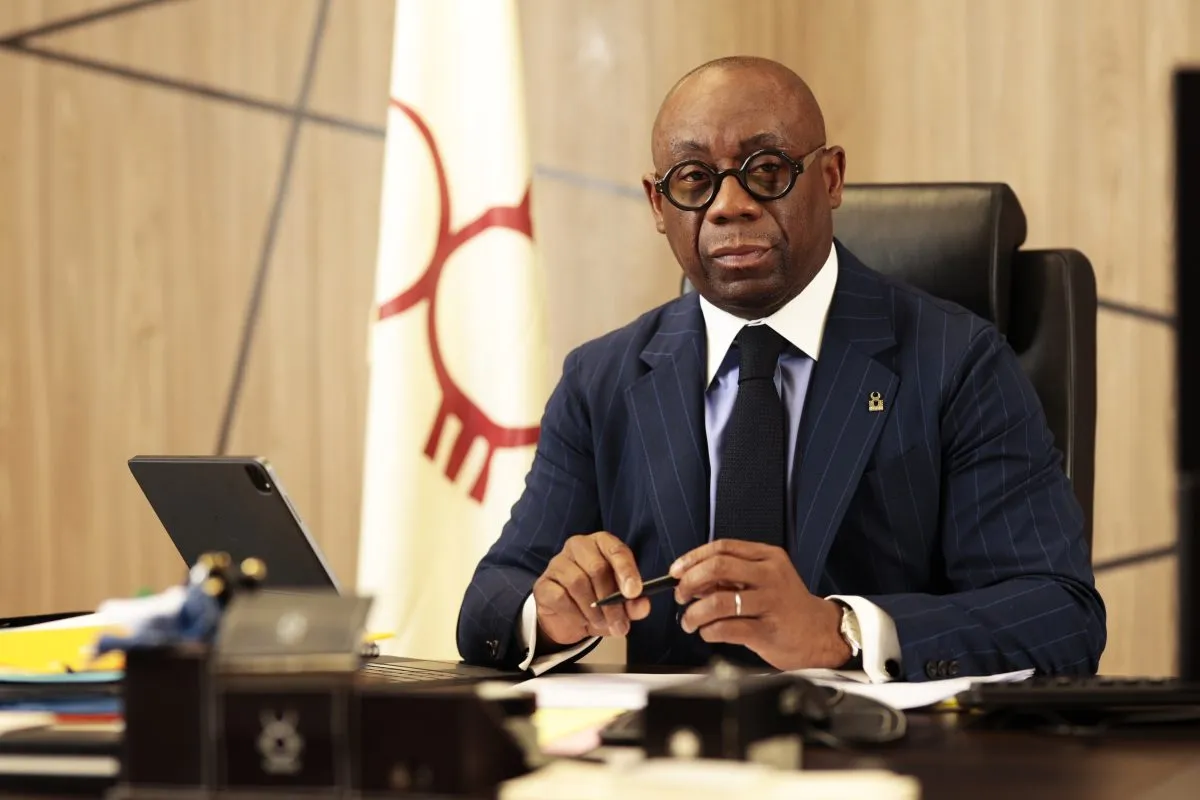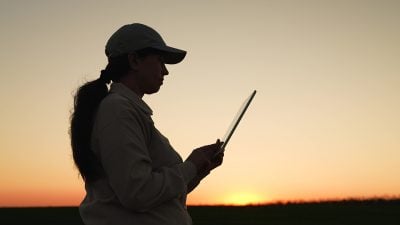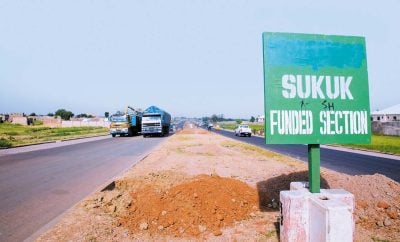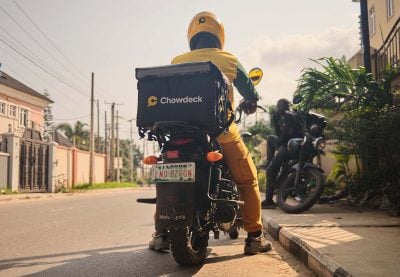Before he took up his position as the President of the West African Development Bank (BOAD) in 2020, Serge Ekué had already established a solid reputation as an outstanding banker on the international circuit.
He worked at a very senior level with the Natixis corporate investment bank in Paris, Hong Kong and London before the call to return to Africa became too strong to turn down.
He therefore brought over 20 years of experience in international finance, structured finance and capital markets to his new role as head of BOAD, a multilateral development finance institution dedicated to promoting development and economic integration among states in the regional bloc.
For Ekué, this pivot to development finance was a welcome opportunity to apply his talents and experience in more concrete or “tangible finance”, as he terms it.
That was the primary push for him to swap London for Lomé, where BOAD is headquartered. “I was mainly motivated by a desire to help foster the continent’s promising future and harness its incredibly huge resources and its capacity to evolve and change.
“Also, I wanted to be part of the efforts to address key constraints – such as power autonomy, education access, housing, employment, women empowerment and the need to lay the foundations so that future generations can excel and succeed.”
He says the switch also made it easier for him to explain the nature of his work to his children. “When you sit in Cannon Street [in the City of London] it is difficult to see the effect that your day-to-day activities have on the lives of people – but over here, what we do has very visible and tangible effects on the lives of people.”
Established in 1973, BOAD is the leading common development finance institution for the Economic Community of West African States (ECOWAS).
Over the years, BOAD has financed sectors such as agriculture, education, healthcare, and transportation, contributing to improved infrastructure and social services. It has helped reduce poverty and enhance the overall quality of life in the region, the banker tell us.
Ekué says the bank has much to be proud of as it celebrates its golden jubilee year. It has mobilised investments to the tune of billions of dollars into the region’s economies, with palpable impacts on the lives of citizens, he says. The investments have expanded access to electricity, built much-needed roads and other infrastructure features that have improved social services like health, education and access to clean water.
Ekué is very enthusiastic about the impact of the Bank’s current plan, the Djoliba 2021-25 Plan. Named after the magnificent River Niger, which flows through the lands of many West African Economic and Monetary Union (WAEMU) member countries, it serves as a link between the peoples of West Africa and, ultimately, the Atlantic Ocean.
The plan seeks to consolidate the role that the bank has been playing since its inception, deepening investments in transport, electrification, affordable housing and digitalisation, as well as supporting efforts to boost production and the creation of regional value chains. “The Djoliba Plan is effectively an additional €5bn over five years, or an additional €1.2bn [between now and 2025],” Ekué says.
As of June 2023, the bank disbursed about CFA1,500bn ($2.45bn) of the CFA3,300bn ($5.4bn) it has targeted to raise and spend on projects in member states’ economies under the plan.
Ekué explains that the figure will go up in line with the bank’s own capitalisation drive. A first raise increased its capital by CFA554.35bn ($910m), which he says will “give our institution the necessary levers to implement its 2021-2025 Strategic Plan and maintain its debt and capital adequacy ratios at comfortable levels”.
The plan also entails changes to organisational structure and composition of the workforce to enable it to boost its capacity to deliver on its goals. In other words, he wants to turbo-charge disbursements and interventions.
For the longer term, the bank will be announcing, after extensive consultations with the relevant stakeholders, a 50-year roadmap that will guide its activities for the next half-century of its existence.
“We will be holding thematic workshops on our five priority areas. We will also have meetings with investors and the private sector and a political summit which will help present our plan to the WAEMU and Heads of State for validation.”
Fundamentally, however, the bank’s role will remain the same. “It is evident that in the years to come, BOAD, like any other development financing institutions, will continue to play its counter-cyclical role to support the development efforts of its member states, which are increasingly faced with challenges such as budgetary constraints.”
Adapting to changing paradigms
While the purpose remains the same, the tools might differ, owing, at least in part to the changing paradigm within which the bank operates.
In the post-Covid years, the fiscal position of several countries in the region has deteriorated significantly and strategies that would have made sense in the past may not be so appropriate now.
But Ekué and the bank are hanging on. “As you know, I grew up in this industry of innovation – investment banking – so the tools that the industry has are very natural to me.
“At the end of the day, the most important thing is that we are able to find a way to execute transactions with the cheapest possible funding, originate the best possible assets and see how these can be used for the benefit of the people in the region.”
There is a pragmatism hinted at here that reflects and underpins the kind of institution Ekué says he wants BOAD to be – a solutions-driven bank.
“The one thing I am constantly interested in is the way that we can be seen to be a real solutions house. That means that we do whatever it takes to bring solutions to the table; to find the best ways, the cheapest funding and longer maturity funds and to originate assets. The focus is essentially on how to find solutions for our clients and solutions for our shareholders.”
That means, he explains, that the bank is not wedded to any particular approaches and is instead focused on the end, rather than the means. “It is really a solutions mindset, much more than about process and procedures.”
He has been pleasantly surprised, he adds, at the calibre of the teams he found at BOAD. They’ve been agile, reactive and open to new ideas. Ultimately, he says, they’re the ones who execute on the ground.
What the bank needs to provide is capital and BOAD has plans in place to boost its capital by $1.5bn over two phases. “The first CFA554.35bn ($910m), agreed and completed this year, will increase our tier one capital and that will come from the contributions by category A and category B shareholders through very simple instruments.
“To add to that, we are working on hybrid structures with highly subordinated transactions with the highest possible equity content of about $600m and that would lead us to $1.5bn.
“Our institution must have its own funds and an excellent financial structure that allows it to increase its resources,” Ekué asserts.
African DFIs sprang into action
Recent crises have proven the significant role of African development finance institutions to African countries and their economies. As private capital markets have shut doors to them and multilaterals are less agile than is ideal, it is African DFIs that have sprung into action to offer timely support.
Well capitalised institutions present an insurance option for a region that even on good days, has typically received less investment or support than it so obviously needs.
As capital becomes more expensive and the geopolitical waters become choppier, the feeling around the continent is that African countries may need to rely more on their own institutions and the innovative instruments that these institutions can deploy to support them.
Ekué shares this view. “As a matter of fact, capital is key to sustaining development, and financial resource mobilisation is a constant challenge.
“Ever since I’ve been at the helm of BOAD, I have observed at first hand the need to strengthen our capacity to leverage affordable capital to finance our development projects.
“So we are working closely with our foreign partners, regional and international capital markets and investors to diversify our sources of funding and improve our capacity to raise funds effectively and in favourable conditions. This further involves promoting economic and political stability in the region to boost investors’ confidence,” he says.
For Ekué, an ideal formula is one where there is close collaboration and complementarity between African DFIs with their intimate knowledge of the local terrains and MFIs with their better ratings and greater capacity to raise and disburse capital. Even as African DFIs expand their roles, this collaboration offers a new way to disburse development finance on the continent.
“Institutions like ours have the origination capacity. We know our region and we know what we have to do. So I believe that institutions with better ratings will have to work with us to, in a sense, help de-risk our portfolios because we are the natural risk-takers in our regions.”
As African DFIs become more confident and assertive, this is an approach that is gaining support. It would utilise the immense, useful and above all, relevant capabilities built on the continent while addressing the issue of finance, which is likely to persist at least into the medium term.
A seat at the table
The collaborative approach is an idea that requires thought and perhaps, action. That is why Ekué has placed it at the centre of his pitch to be the next chair of the International Development Finance Club (IDFC), a global association of 26 national, regional, and multilateral development banks that BOAD has been a member of for the past decade.
The group works to advance common development objectives, including the Sustainable Development Goals and the Paris Climate Agreement.
It selects its chairman from a steering group. The current chair is Rémy Rioux, chief executive of the French Development Agency. Ekué believes that from the presiding chair, he would be able to canvas this proposition more effectively and perhaps, help bring about some of the changes to the international financial system that has become a cause célèbre on the international circuit in recent times.
Ekué’s leadership of such an organisation would come at the right time for the continent and the global financial system, he argues. He appears clear-eyed about the issues that he’d have to confront from the first day.
“We have a number of challenges that we share. We have the situation in South America, which has been compared to that in Asia. The idea is that we have to share best practices, share data and join forces to promote our various regional banks so that they are once again seen as relevant when it comes to enhancing development.”
His platform includes proposals to strengthen public development banks (PDB) in project design and execution; align PDBs with the 2030 climate goals; promote a new financial architecture that is attuned to the climate challenge and allocates the special drawing rights in accordance to that need; and place social impact and innovation at the heart of development planning.
For the continent, an African leadership of yet another global institution that has, until now, only had Europeans at the helm would be a huge boost. It would mean an opportunity to give African issues the attention and understanding that is not always guaranteed. At a time of profound change, when era-defining decisions are being contemplated, the continent that is currently the youngest and will soon be the most populous, Africa, should have a seat or several at the tables where those decisions are being made.
Want to continue reading? Subscribe today.
You've read all your free articles for this month! Subscribe now to enjoy full access to our content.
Digital Monthly
£8.00 / month
Receive full unlimited access to our articles, opinions, podcasts and more.
Digital Yearly
£70.00 / year
Our best value offer - save £26 and gain access to all of our digital content for an entire year!
 Sign in with Google
Sign in with Google 



